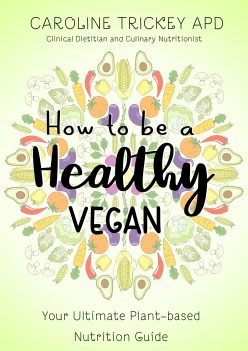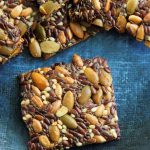The Truth About Saturated Fat
A recent study on dietary fats has been mis-reported as suggesting that saturated fats are healthy for us to eat
This is entirely misleading and just more media hype helping to confuse people with regards to what they should be eating (grrr!)
Dr David Katz sets the record straight in this article from the Huffington Post
The New Dietary Fat Study: What You Will Hear and What It Really Means
If you have time, read the entire article, but if not, this is my favourite part of his article….
“Basically, this study showed that if you vary your intake of saturated fat or omega-6 fat without altering the overall quality of your diet, you are not likely to alter your health much either. That’s not much of a revelation — and unlikely to make any headlines expressed as such. But the headlines we are getting, while much more exciting, are entirely misleading. There was no suggestion at all here of any health benefits of saturated fat, and some hint of harmful effects despite the important study limitations. There were suggestions of favorable effects of the usual suspects, omega-3 fat and monounsaturated fat.
But moving on from such one-nutrient-at-a-time preoccupations, there is a bigger fish to fry here than just fish oil, or olive oil or lard. Dietary guidance must be about the whole diet, and should be directed at foods rather than nutrients. If we get the foods right, the nutrients take care of themselves.
This study does nothing to refute what we already knew about diet and health — and frankly, that was quite a lot. We know what dietary patterns are associated with the longest, and most vital lives among peoples in the Blue Zones. We know what dietary patterns are associated with dramatic reductions in the lifetime risk of all chronic diseases. We know what dietary patterns are associated with reductions in the rate of heart attack in intervention studies.
Are such diets low in saturated fat? Yes, but as a byproduct of the foods that are eaten. A diet that is made up mostly of vegetables, fruits, beans, lentils, nuts, seeds, and whole grains, with or without fish, seafood, lean meats, eggs and dairy simply has less room for saturated fat, let alone trans fat. Such a diet is natively high in omega-3 and monounsaturated fat, and balanced in terms of polyunsaturates. Just as important, such a diet is relatively low in refined starch and added sugar, and natively rich in fiber, vitamins, minerals and antioxidants. Attend to the forest, in other words, and the trees thrive. Bark up any given tree, and you may fail to notice that the forest has burned to the ground.
Our one-nutrient-at-a-time approach to diet and health has been a decades long public health boondoggle. Our penchant to talk about nutrients rather than food is antiquated and substantially misguided. There is saturated fat in salmon and salami. There is carbohydrate in lentils and lollipops. Lumping foods together across such a spectrum is the garbage in that invites studies that will inevitably spit garbage out. Looking at variation in saturated fat while ignoring sugar is an exercise in futility.
Our inclination to play Ping-Pong with scientific findings comes at a cost in human potential. Our proclivity for hyperbolic headlines is a public health menace.
This new study shows we can vary our intake of any given fatty acid and not alter the quality of our diet or health. Well, duh. There is more than one way to eat badly.
And there are no good answers to misguided questions.
My advice is as it ever was. Chew carefully on headlines before choosing to swallow the hyperbole, and eat a diet of wholesome foods reliably associated with good health across a vast and stunningly consistent literature. Do that, and let the fatty acids and other nutrients sort it out for themselves.”
I couldn’t have said it better myself! 🙂












